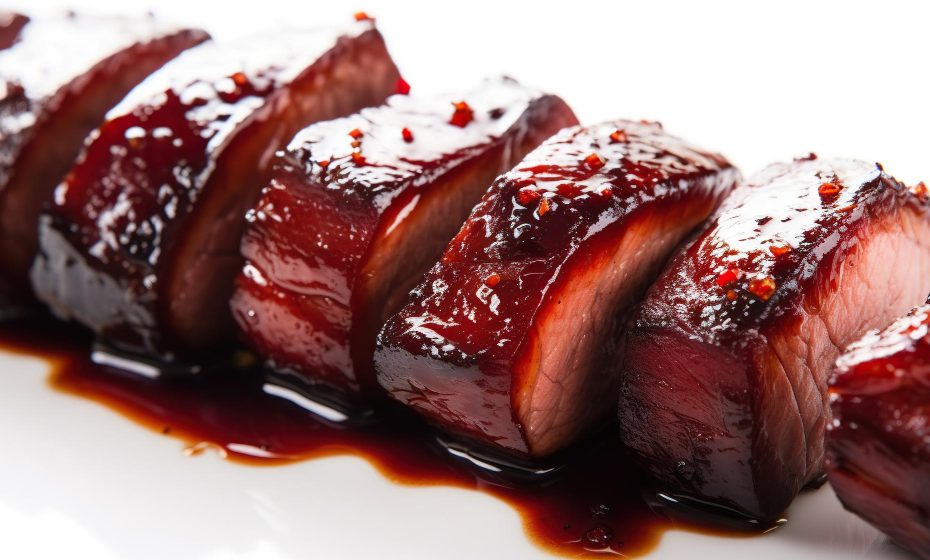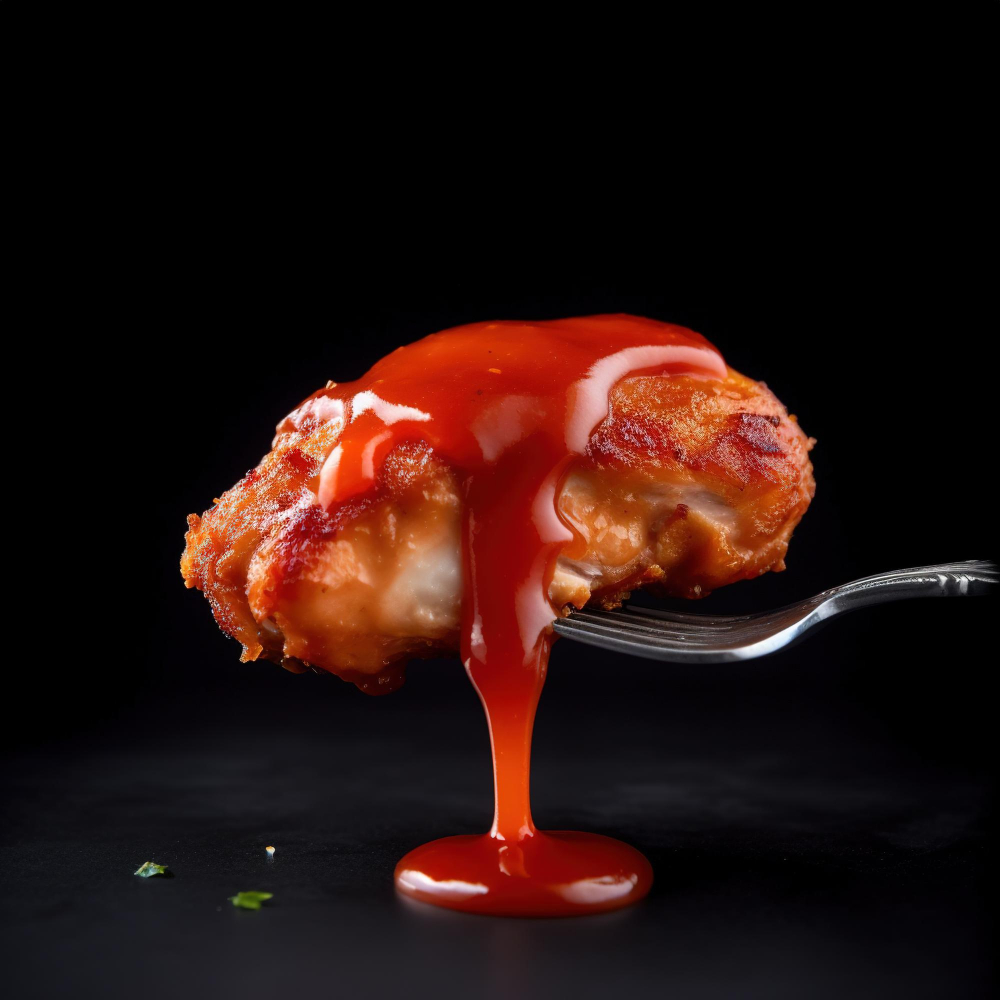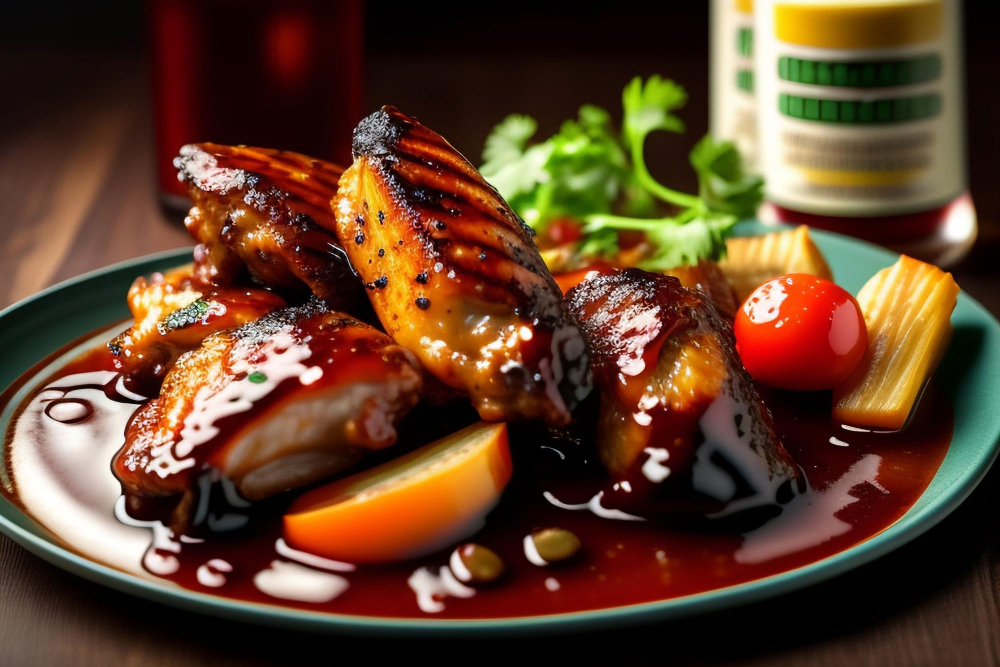Can BBQ Sauce Cause Acid Reflux?
Introduction
Acid reflux, also known as gastroesophageal reflux disease (GERD), is a condition that affects millions of people worldwide. It occurs when the stomach acid flows back into the esophagus, causing discomfort and potentially damaging the lining of the esophagus. Many factors can trigger or worsen acid reflux symptoms, including certain types of foods and sauces.
In this article, we will explore whether BBQ sauce, a popular condiment often consumed during outdoor grilling and summer cookouts, can cause acid reflux. We will examine the ingredients commonly found in BBQ sauce and their potential effects on acid reflux. Additionally, we will provide some tips for managing acid reflux while still enjoying flavorful barbecued meals.
The Ingredients of BBQ Sauce
BBQ sauce typically contains a variety of ingredients, which can vary depending on the brand and recipe used. However, some common components include tomatoes or tomato paste, vinegar, sugar, spices, and frequently, high-fructose corn syrup. Let’s examine how these ingredients may relate to acid reflux symptoms.
Tomatoes: Tomatoes are highly acidic, and consuming acidic foods can trigger or worsen acid reflux symptoms in some individuals. The high acid content in tomatoes can cause the stomach to produce more gastric acid, promoting the likelihood of acid reflux episodes.
Vinegar: While some studies suggest that vinegar might help alleviate acid reflux symptoms, others indicate that it can potentially worsen them. The acetic acid present in vinegar can trigger heartburn and irritate the esophagus in some people.
Sugar and High-Fructose Corn Syrup: BBQ sauce often contains added sugars, such as high-fructose corn syrup. Consuming sugary foods and beverages can lead to an increased risk of acid reflux. These sugars can relax the lower esophageal sphincter (LES), which is responsible for keeping stomach acid in the stomach. When the LES weakens, it becomes easier for stomach acid to flow back into the esophagus.
Spices: Certain spices used in BBQ sauce, such as chili powder or black pepper, may also trigger acid reflux symptoms in some individuals. Spicy foods can irritate the stomach lining and increase the production of stomach acid, potentially leading to acid reflux episodes.
Managing Acid Reflux While Enjoying BBQ
If you are prone to acid reflux or have been diagnosed with GERD, you may be concerned about how BBQ sauce could affect your symptoms. However, there are strategies you can implement to manage acid reflux while still enjoying barbecued meals. Here are some tips:
- Choose a BBQ Sauce with Milder Ingredients: Look for BBQ sauces that are low in acidity and don’t contain spicy ingredients. Opt for brands that use less vinegar or offer milder versions of the sauce. Reading labels and choosing sauces with fewer additives can help reduce the risk of triggering acid reflux.
- Limit Portion Sizes: While BBQ sauce can add flavor to your meals, excessive consumption can increase the likelihood of acid reflux symptoms. Be mindful of portion sizes and limit your intake of BBQ sauce to control the amount of potential triggers for acid reflux.
- Consider Alternative Condiments: If you find that BBQ sauce consistently triggers your acid reflux symptoms, consider exploring alternative condiments that are less likely to cause irritation. Options such as mustard, low-acid salsas, or homemade sauces using milder ingredients may be suitable alternatives for your barbecued meals.
- Be Mindful of Other Triggers: Acid reflux triggers can vary from person to person. In addition to BBQ sauce, pay attention to other potential triggers and make adjustments accordingly. Common triggers include caffeine, alcohol, fatty foods, and citrus fruits. Keep a food diary to help identify any patterns or specific triggers that worsen your symptoms.
Expert Opinion
“While individual responses to specific foods can vary, BBQ sauce, particularly those with highly acidic ingredients like tomatoes and vinegar, can potentially trigger acid reflux symptoms in susceptible individuals,” says Dr. Claire Thompson, a gastroenterologist specializing in digestive disorders.
She further explains,
“It’s essential for individuals with acid reflux or GERD to be mindful of their dietary choices and identify what works best for them. Some may find that consuming small amounts of BBQ sauce occasionally doesn’t cause noticeable symptoms, while others may need to avoid it altogether. It’s all about understanding your own body’s responses and finding the balance that works for you.”
Table: Comparison of BBQ Sauce Brands
| Brand | Acidity Level | Spiciness | Sugar Content |
|---|---|---|---|
| Brand A | High | Moderate | High |
| Brand B | Low | Mild | Low |
| Brand C | Medium | High | Moderate |
Conclusion
In conclusion, BBQ sauce can potentially cause acid reflux symptoms due to its acidic ingredients like tomatoes and vinegar. However, individual responses may vary, and some people might be able to tolerate small amounts of BBQ sauce without experiencing discomfort. By choosing milder versions of BBQ sauce, managing portion sizes, and being mindful of other triggers, individuals with acid reflux can still enjoy barbecued meals while minimizing potential symptoms. It’s essential to listen to your body and make informed choices that work best for your digestive health. If symptoms persist or worsen, it is recommended to consult a healthcare professional for personalized advice and guidance.


